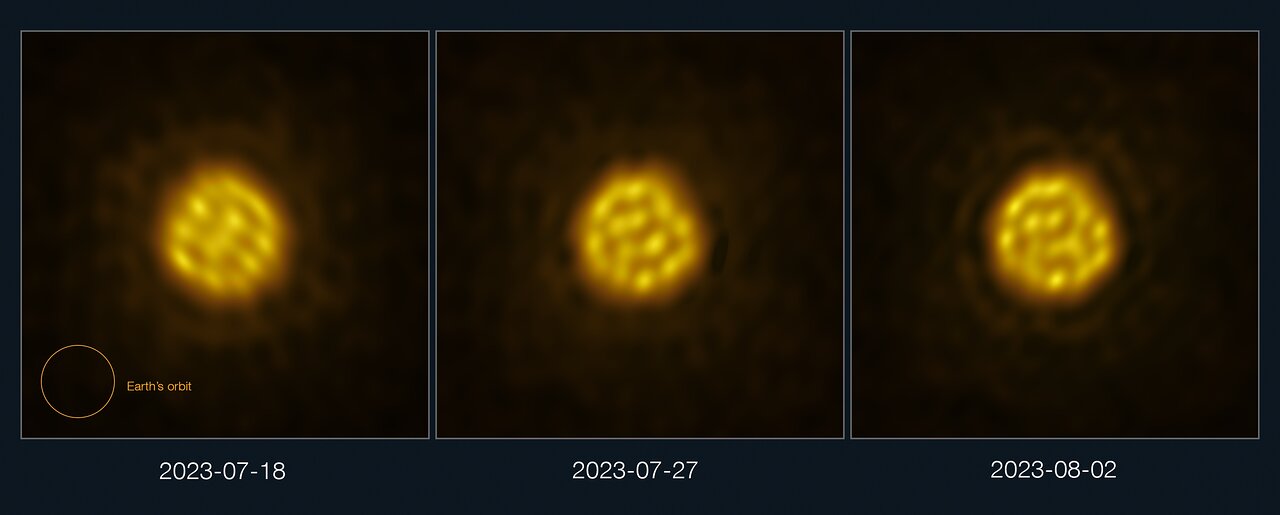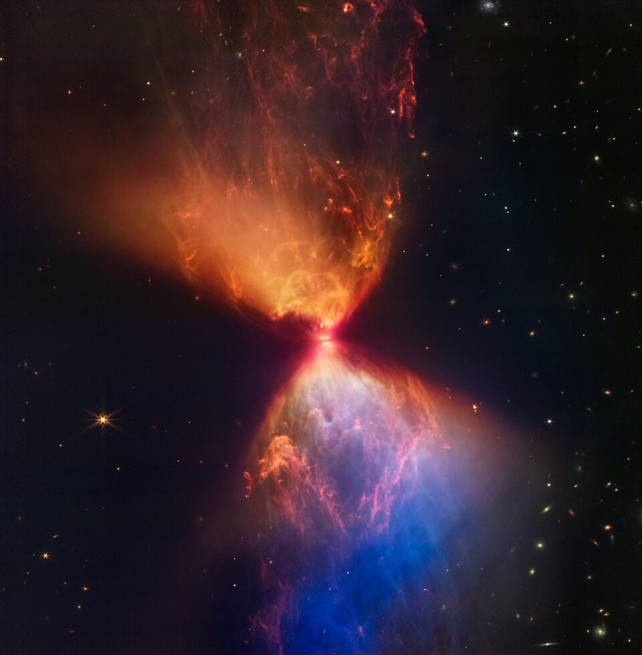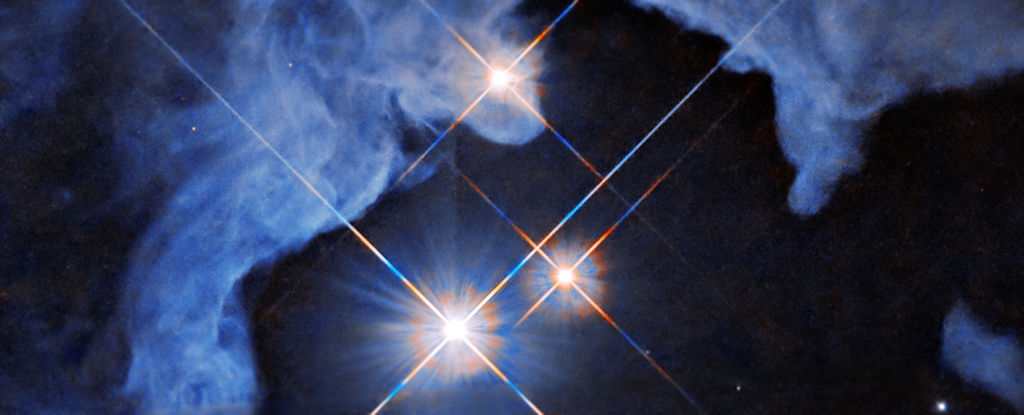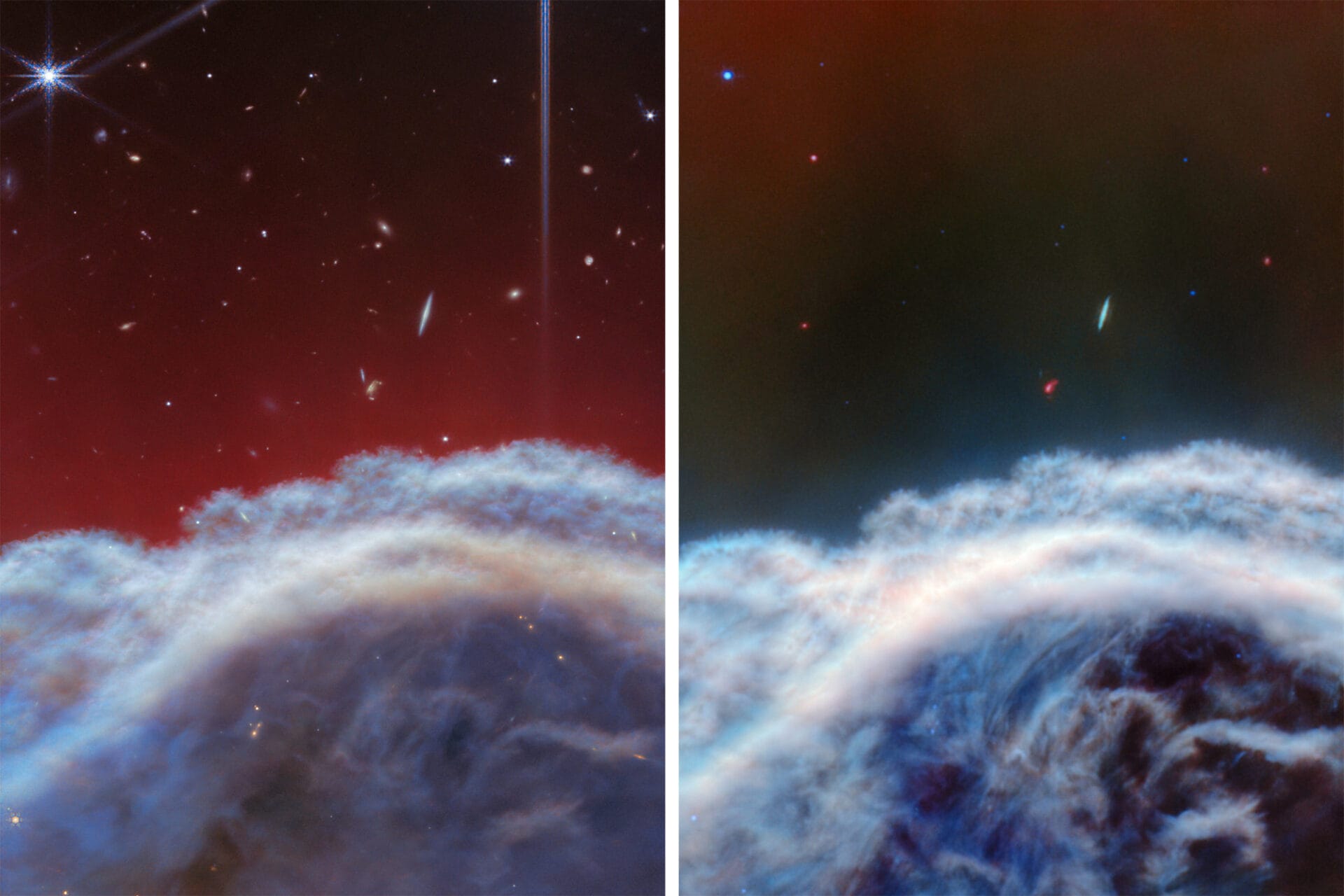
Astronomers have created a galactic masterpiece: an ultra-detailed image that reveals previously unseen features in the Sculptor galaxy.

Most of the lights in the new JWST-Hubble composite image are not bright stars, but galaxies, stretching back almost as far across space-time as the beginning of the Universe.

In a new image from NASA’s James Webb Space Telescope, a galaxy named for its resemblance to a broad-brimmed Mexican hat appears more like an archery target.

In this incredible image, we can see the unrestrained energy of two young stars about 650 light-years away as their energetic jets create a distinct hourglass shape with clumps and swirls of gas and dust.

Every year, the International Space Station produces some of the world's best photography. Here are the best photos of 2024 from the space station.

Astronomers made a photo of a colossal belch – a gamma-ray eruption from one of the powerful jets of plasma launched from the black hole's poles as it feeds.

For the first time, we have succeeded in taking a zoomed-in image of a dying star in a galaxy outside our own Milky Way. The star WOH G64 is located a staggering 160 000 light-years from us.

For the first time, astronomers have captured images of a star other than the Sun in enough detail to track the motion of bubbling gas on its surface.

To celebrate the 25th anniversary of its launch, NASA’s Chandra X-ray Observatory is releasing 25 never-before-seen views of a wide range of cosmic objects.

james Webb Space Telescope continues to revolutionise astronomy - it now shows the birth of a star. The star is named L1527, and at this young age, it's still ensconced in the molecular cloud that spawned it.

Another amazing image has been released that shows the triple-star system HP Tau, HP Tau G2, and HP Tau G3. HP Tau is so young that it hasn't started to fuse hydrogen yet and is only 10 million years old!

Focused on the part of the sky where you can spot the constellation Orion on clear nights, the James Webb Space Telescope’s latest dispatch blinks in astonishing images from an area known as the Orion B molecular cloud.

It’s oh-so-easy to be absolutely mesmerized by these spiral galaxies. Follow their clearly defined arms, which are brimming with stars, to their centers, where there may be old star clusters and – sometimes – active supermassive black holes.

The James Webb Space Telescope has turned its golden gaze to Cassiopeia A, a spectacular, complex, expanding cloud of hot gas billowing out from a star humanity saw go supernova back in the 1670s.

It's called Messier 57, AKA the Ring Nebula, a glowing circle of gas in the constellation of Lyra, some 2,750 light-years from Earth.